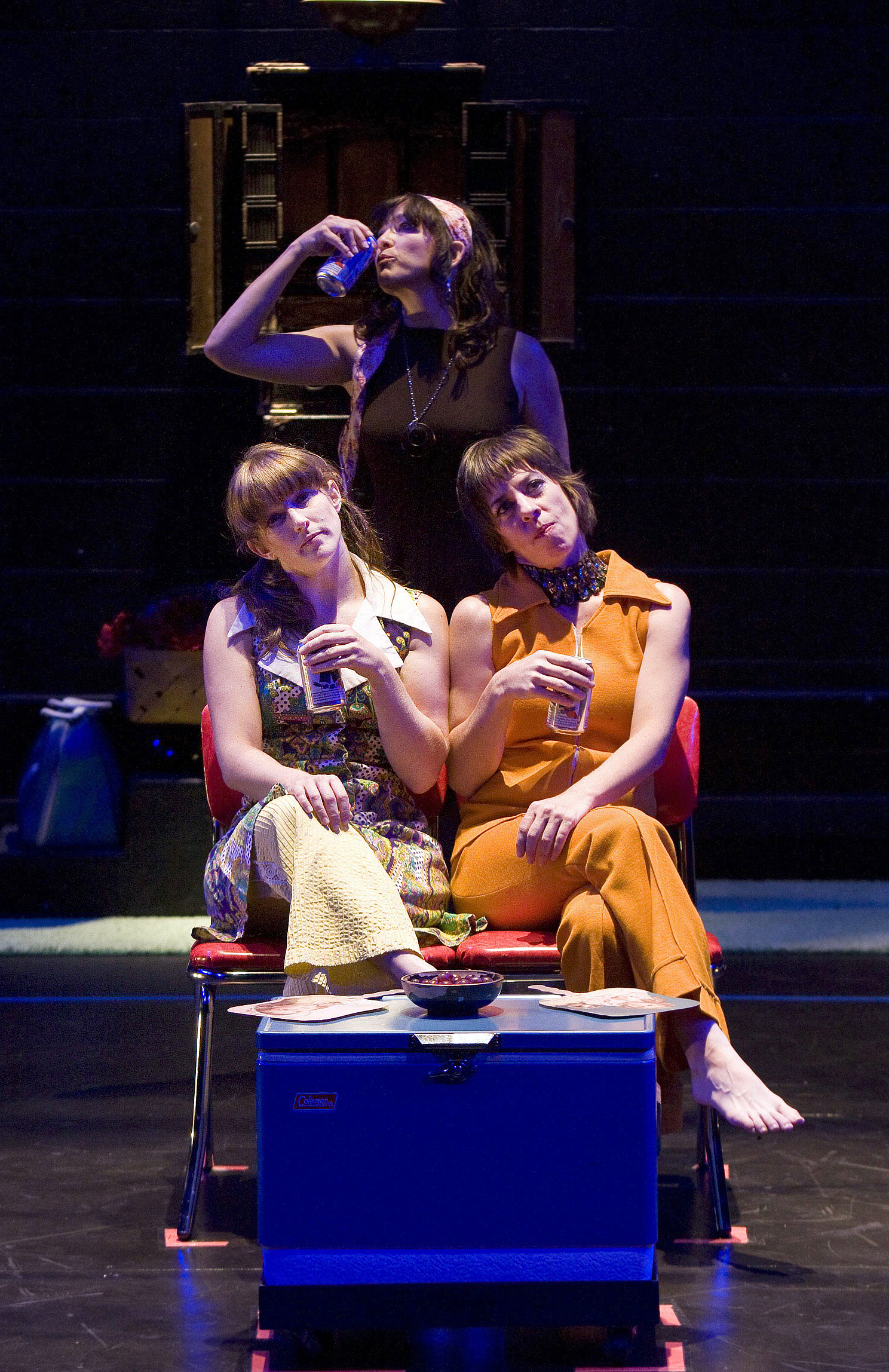On July 30, 1975, a troupe of five actors opened their production of Tennessee William’s “A Streetcar Named Desire.” Their version, however, was without the leading roles of Stanley, Stella, Mitch or Blanche. They had been rehearsing for nine years. And they performed only once. This madness was the brainchild of the obscure 1960s theatrical pedagogue Stella Burden, who abandoned her actors in 1972, fleeing to South America.
Rude Mechanicals ““ Rude Mechs for short ““ is an Austin-based theater company that developed “The Method Gun,” a play that tries to piece together the mystery surrounding Burden, her actors and their one performance. “The Method Gun” is a part of the Center Theatre Group’s DouglasPlus.
“The Method Gun,” which debuted in the 2010 Humana Festival of New American Plays, adopts a non-traditional approach. The curtain-less stage is brightly lit and looks like a 1970s display from the Smithsonian National Museum of American History. Before the play begins, actors mill about the theater, speaking amongst themselves and with patrons. The play begins with an interactive exercise as each audience member writes the name of his or her most influential teacher on a slip of paper, placing them in bowls that travel down the aisles like collection plates.
This is appropriate as the entire production is a dedication to the guru; not just the mysterious Burden, but to the notion of mentor and the transmission of methods. Rude Mechs creates an on-stage documentary full of re-enactments of rehearsals, interviews and reunion panels. The play culminates in the full staging of the original Stella Burden Theater Company’s production of “Streetcar.”
This documentary style erodes the traditional view that the actor becomes another person on stage. For example, Thomas Graves, a member of Rude Mechs, never stops being Thomas Graves, even referring to his on-stage role of Carl Reyholt as “the character I play.” Graves must also take on the four roles in “Streetcar” that Reyholt portrayed in 1975.
Burden’s method, called “The Approach,” also takes center-stage as Rude Mechs tries to exorcise the restrictive effects of her techniques, showing that teachers’ methods leave their students with long-term mental conditioning. Some are banal: simple crying and kissing practice. Some are exotic: The Rasa Squares exercise divides the stage into nine quadrants that dictate the actors’ actions from “Joy” and “Foreign repose” to “Confrontational vulgarity.” Some are dangerous: The Method Gun is a loaded pistol in a bird cage that Burden brought to rehearsals to show that anyone in the room could kill another actor at any time.
So much of “The Method Gun” is bizarre. “The Approach” is inane and hysterical. Burden’s students (or at least their re-enacted roles) are obsessive. A tiger bounds on stage in comical interludes. Male cast members attach bouquets of helium balloons to, well, their male parts. And somehow, Rude Mechs turns the bizarre into the brilliant.
What’s more, it’s all baloney.
Burden never existed. Neither did Reyholt. “The Approach” is a parody of method acting. The gun on stage is full of blanks. When Rude Mechs performs the version of “Streetcar” ““ without the roles of Stanley, Stella, Mitch or Blanche ““ they are acting, not re-enacting. This last scene, rife with symbolism and Cirque du Soleil flair, is moving and more meaningful than Rude Mechs’ antics intimate.
“The Method Gun” is heavy artillery in the theater world and Rude Mechs is the cannoneer that expertly fires into its audience’s hearts. This production does not miss its mark. Neither should the serious theatergoer miss this play.
Email Boden at dboden@media.ucla.edu.
